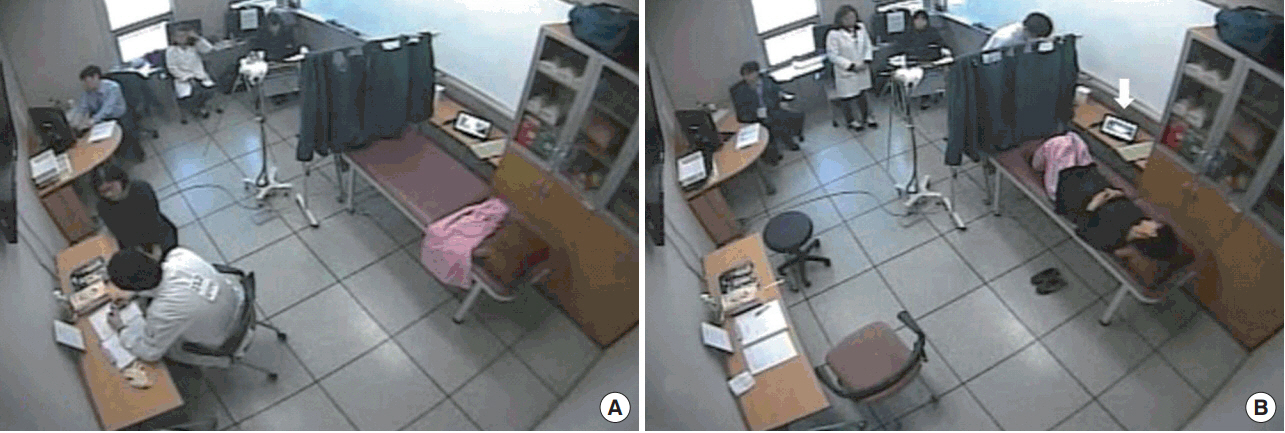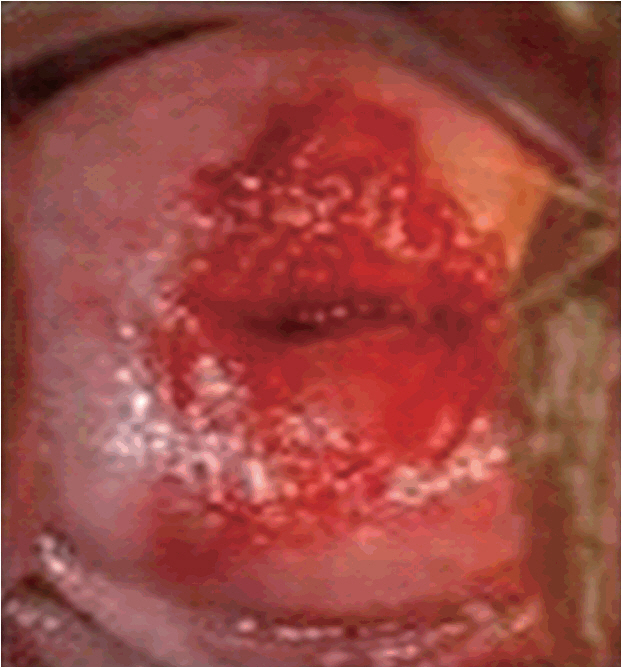J Educ Eval Health Prof.
2018;15:4. 10.3352/jeehp.2018.15.4.
Authenticity, acceptability, and feasibility of a hybrid gynecology station for the Papanicolaou test as part of a clinical skills examination in Korea
- Affiliations
-
- 1Department of Pediatrics and Medical Education, Gyeongsang National Institute of Health Sciences, Gyeongsang National University School of Medicine, Jinju, Korea.
- 2Department of Obstetrics and Gynecology, Kosin University College of Medicine, Busan, Korea.
- 3Department of Medical Education, Pusan National University School of Medicine, Busan, Korea.
- 4Department of Medical Humanities, Dong-A University College of Medicine, Busan, Korea.
- 5Department of Parasitology, Dong-A University College of Medicine, Busan, Korea.
- 6Department of Medical Education and the Institute for Medical Humanities, Inje University College of Medicine, Busan, Korea. hyerinr@gmail.com
- KMID: 2439260
- DOI: http://doi.org/10.3352/jeehp.2018.15.4
Abstract
- PURPOSE
The objective of this study was to evaluate the authenticity, acceptability, and feasibility of a hybrid station that combined a standardized patient encounter and a simulated Papanicolaou test.
METHODS
We introduced a hybrid station in the routine clinical skills examination (CSE) for 335 third-year medical students at 4 universities in Korea from December 1 to December 3, 2014. After the tests, we conducted an anonymous survey on the authenticity, acceptability, and feasibility of the hybrid station.
RESULTS
A total of 334 medical students and 17 professors completed the survey. A majority of the students (71.6%) and professors (82.4%) agreed that the hybrid station was more authentic than the standard CSE. Over 60 percent of the students and professors responded that the station was acceptable for assessing the students' competence. Most of the students (75.2%) and professors (82.4%) assessed the required tasks as being feasible after reading the instructions.
CONCLUSION
Our results showed that the hybrid CSE station was a highly authentic, acceptable, and feasible way to assess medical students' performance.
MeSH Terms
Figure
Cited by 1 articles
-
Clinical performance of medical students in Korea in a whole-task emergency station in the objective structured clinical examination with a standardized patient complaining of palpitations
Song Yi Park, Hyun-Hee Kong, Min-Jeong Kim, Yoo Sang Yoon, Sang-Hwa Lee, Sunju Im, Ji-Hyun Seo, Sun Huh
J Educ Eval Health Prof. 2020;17:42. doi: 10.3352/jeehp.2020.17.42.
Reference
-
References
1. Jha V, Setna Z, Al-Hity A, Quinton ND, Roberts TE. Patient involvement in teaching and assessing intimate examination skills: a systematic review. Med Educ. 2010; 44:347–357. https://doi.org/10.1111/j.1365-2923.2009.03608.x.
Article2. Kim KS. Introduction and administration of the clinical skill test of the medical licensing examination, republic of Korea (2009). J Educ Eval Health Prof. 2010; 7:4. https://doi.org/10.3352/jeehp.2010.7.4.
Article3. Frank JR, Snell LS, Cate OT, Holmboe ES, Carraccio C, Swing SR, Harris P, Glasgow NJ, Campbell C, Dath D, Harden RM, Iobst W, Long DM, Mungroo R, Richardson DL, Sherbino J, Silver I, Taber S, Talbot M, Harris KA. Competency-based medical education: theory to practice. Med Teach. 2010; 32:638–645. https://doi.org/10.3109/0142159X.2010.501190.
Article4. Posner GD, Hamstra SJ. Too much small talk?: medical students’ pelvic examination skills falter with pleasant patients. Med Educ. 2013; 47:1209–1214. https://doi.org/10.1111/medu.12280.
Article
- Full Text Links
- Actions
-
Cited
- CITED
-
- Close
- Share
- Similar articles
-
- Experience of introducing an electronic health records station in an objective structured clinical examination to evaluate medical students’ communication skills in Canada: a descriptive study
- The Clinical Significance of the Detection of Human Papilloma Virus in the Patients with ASCUS in the Cervical Pap Smear
- Clinical Usefulness of New Cervicography in Screening of Cervical Cancer
- Value of Papanicolaou Smear in Detection of Bacterial Vaginosis
- Delphi Study on Introduction of Practical Skills Test in National Examination for Nursing Licensure



